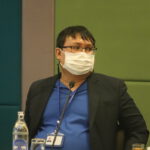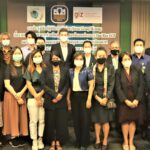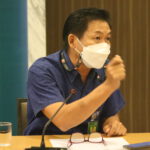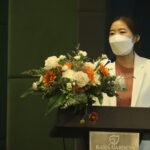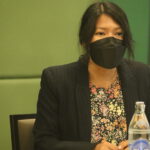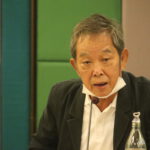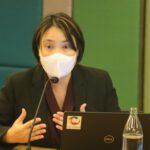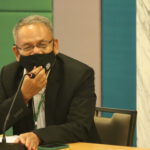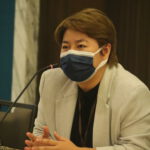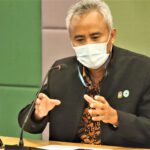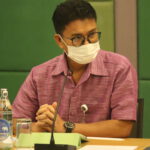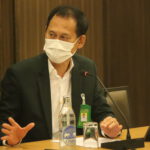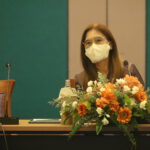
Financial experts from the Bank for Agriculture and Agricultural Cooperatives (BAAC) and the Thai Credit Guarantee Corporation (TCG) met with a proposal development team at Deutsche Gesellschaft für Internationale Zusammenarbeit GmbH (GIZ) during a recent workshop aimed at brainstorming feasibility and way forward to introduce a set of financial solutions crucial for supporting Thai farmers to adopt climate resilient, and smart rice farming.
Held as part of a workshop series, representatives from the Bank for Agriculture and Agricultural Cooperatives (BAAC) and the Thai Credit Guarantee Corporation focused on sharing experiences and exchanging ideas, options and recommendations on the related financial tools including sustainable loan and credit products apart from crop insurance to support Thai farmers, regarded as a crucial step for supporting the currently-developed funding proposal “Thai Rice: Strengthening Climate-smart Rice Farming” (Thai Rice GCF) project.
A proposal development team at Deutsche Gesellschaft für Internationale Zusammenarbeit GmbH (GIZ) earlier sought ideas and inputs from agricultural practitioners and representatives from the Office of Natural Resources and Environmental Policy and Planning (ONEP), Ministry of Natural Resources and Environment and the Rice Department of the Ministry of Agriculture and Cooperatives to ensure that the proposed Thai Rice GCF project would benefit small-scale farmers and all stakeholders while transforming Thai rice sector towards low-emission, climate- smart rice farming.
Following the proposed project, as many as 250,000 smallholder rice farmers in 21 provinces in northern, northeastern and central provinces will be equipped with agricultural innovation knowledge and skills while having a better access to climate-resilient and low-emission rice farming technologies. As a result, they can increase rice quality, yields and revenue while reducing production costs, water consumption and ultimately greenhouse gas emission (GHG). A minimum of 4 million tonnes of CO2 equivalent GHG emissions is expected to be reduced from the Thai rice sector over a five-year implementation period of 2023-2028.
A financial mechanism concept “Thai Green Farmer Facility (TGFF)”, and other possible schemes such as subsidy promotion, carbon credit for service providers, credit guarantee mechanism, and rice insurance were also presented during the meeting to collect inputs and recommendations from agri-finance experts to upscaling implementation of the existing financial services and instruments under the currently-implemented Thai Rice NAMA project.
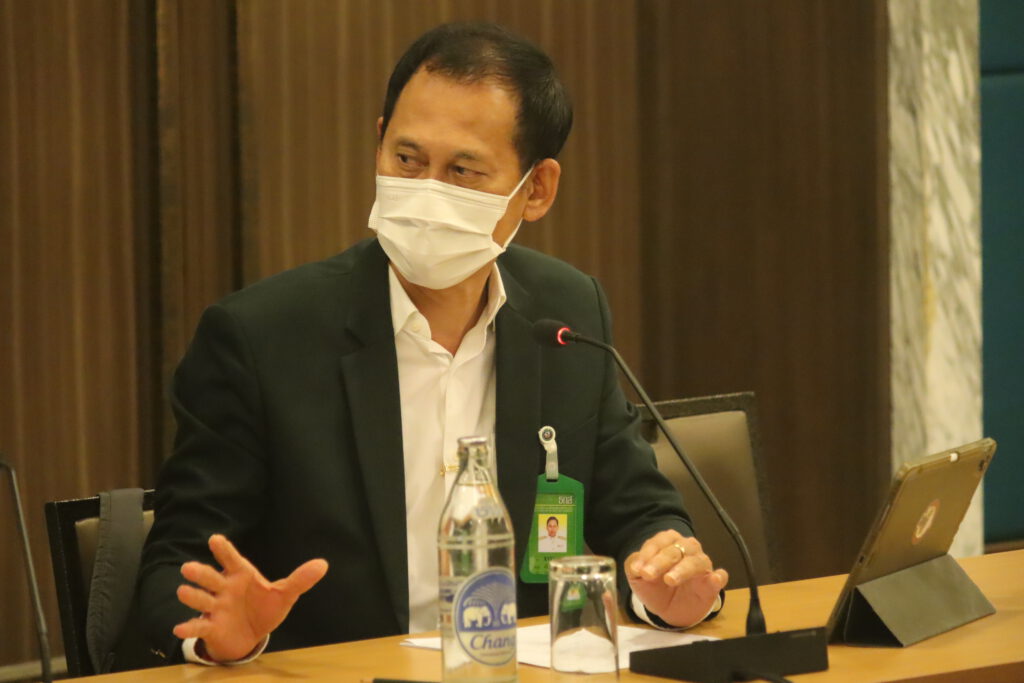
Tara Srihamas, BAAC Deputy Director of Loan Division said, “Raising awareness on the impact of climate change and enhancing participation from all sectors, particularly farmers to adopt low-emission rice farming into practice to better their lives and livelihood is necessary. Active participation of our staff is the key to driving this project to success.”
Ampawa Sylanont, Thai Rice Nama Financial Advisor, said input from the BAAC representatives was valid. An availability of capacity building activities is crucial for not only targeted farmers but also all stakeholders including BAAC staff at the branch level. They are frontliners driving the project implementation with farmers.
In addition, a variety of financial tools apart from crop insurance should be available and promoted so that smallholder farmers can effectively access suitable financial programmes for their needs, she said.

“A better understanding of rice farming technology, innovation, and new business models among all related stakeholders and their willingness to put into practice are key factors transformation Thailand towards low-emission rice farming,” she said.
To effectively benefit all players in the Thai rice sector, the meeting group agreed to draft a memorandum of understanding (MoU) as a piloted collaboration with BAAC, as the key agri-finance institution, in a bid to further strengthen technical and organisational capacity related to climate risk financing. The upcoming joint activities and implementation between GIZ, BAAC and Thai authorities would contribute a positive result to Thailand’s policy on carbon neutrality by 2050 and net-zero GHG emissions by 2065.
The proposal development team is on the process of consolidating inputs and suggestions from the meeting for a new round of the funding proposal presentation likely to be taken place by the end of year. ■

